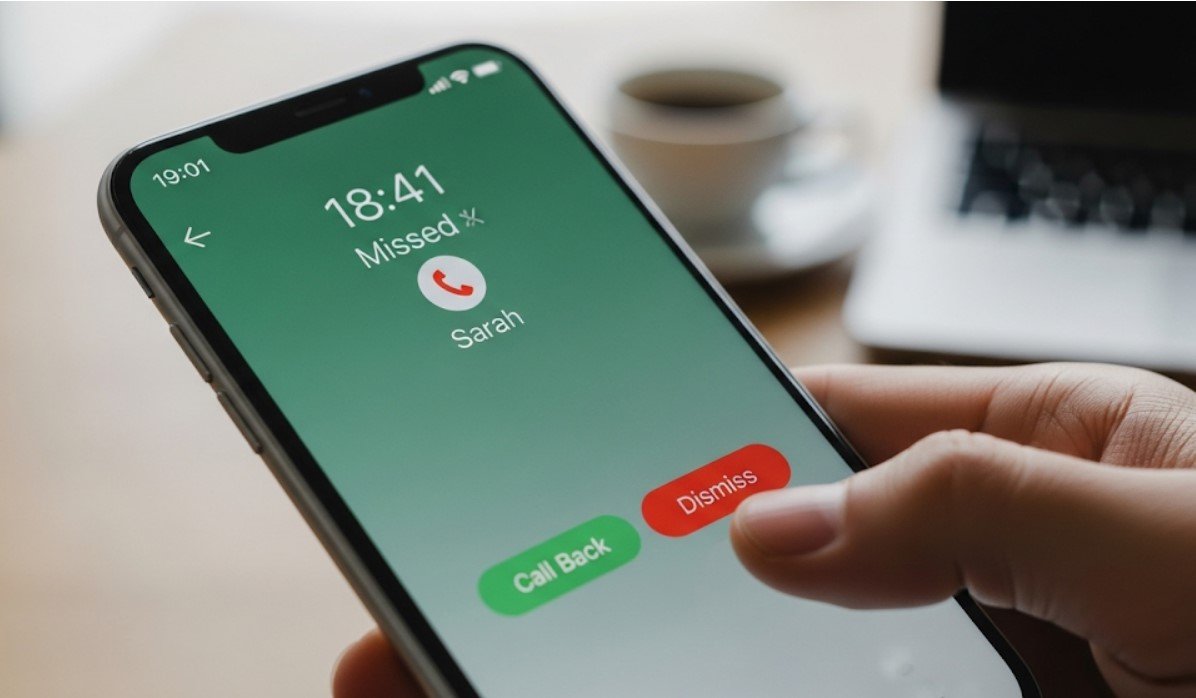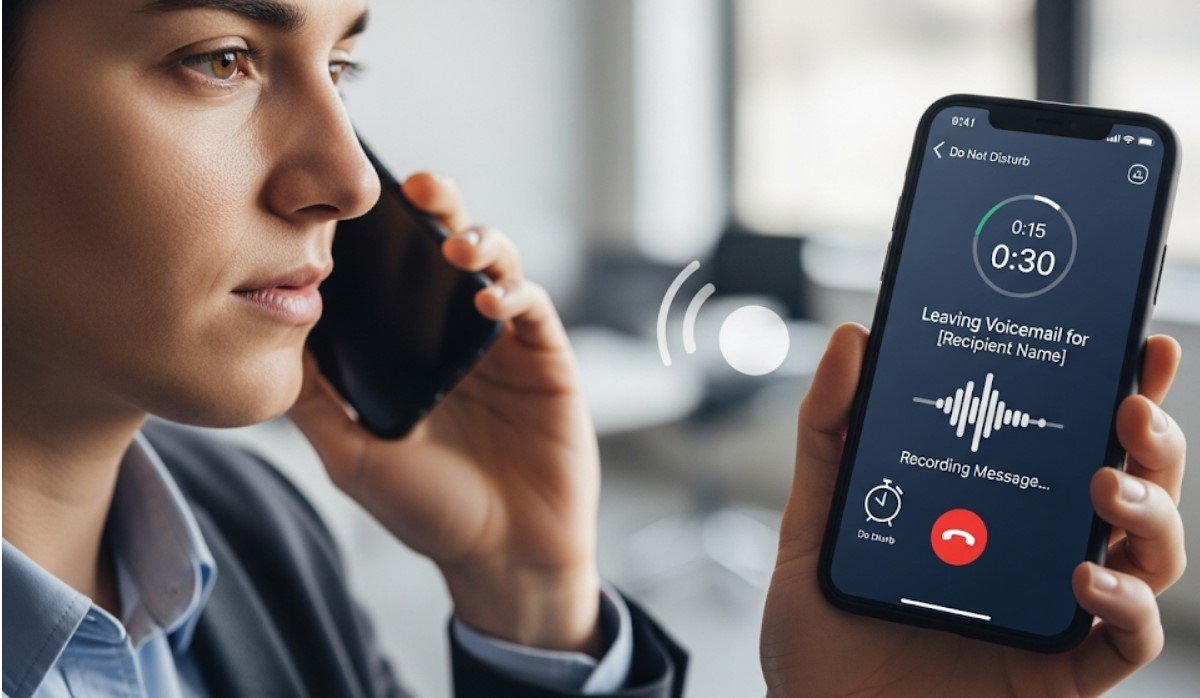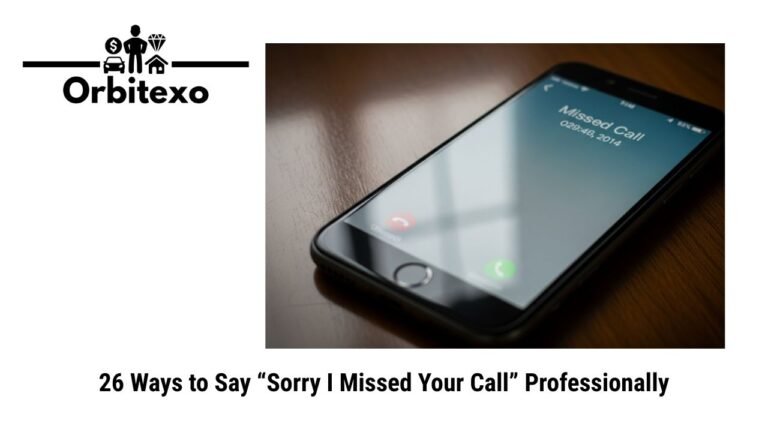In professional settings, missing a call can happen to anyone. Knowing how to respond appropriately is key.
Apologizing for a missed call might seem simple, but doing it professionally can make a big difference in how you’re perceived. Whether you missed an important client call, a team meeting, or a networking opportunity, the way you address it matters.
A well-crafted apology shows respect and keeps relationships strong. It also demonstrates your commitment to good communication. Ready to learn the best ways to say “Sorry I missed your call” professionally? We’ve gathered 26 effective methods to help you handle this common situation with grace and professionalism. Keep reading to find the perfect way to apologize and maintain your professional image.
Apologizing For Missing A Call
Acknowledging The Missed Call

- “I noticed I missed your call earlier today.”
- “I see that I missed your call this afternoon.”
- “I apologize for missing your call yesterday.”
Expressing Sincere Apology
Expressing a sincere apology is key. It shows that you value the caller’s time. Here are some ways to do this:- “I am truly sorry for not being available.”
- “Please accept my apologies for the inconvenience.”
- “I regret that I missed your call.”
Offering A Reason
Offering a reason for missing a call can show respect and maintain professionalism. It helps the caller understand why you couldn’t answer. This builds trust and keeps communication clear. Here are some ways to offer a reason while keeping it professional.
Providing A Brief Explanation
When you miss a call, give a short, clear reason. This makes your response more credible. For example, “I was in a meeting” or “I was attending a client.” Keep your explanation simple. Avoid lengthy details. This shows respect for the caller’s time.
Ensuring Professionalism
Maintain a professional tone in your explanation. Use polite language. This keeps the conversation respectful. For example, “I apologize for not answering, I was in a meeting.” This shows you value their call and time.
Suggesting A Solution
Missing an important call can be frustrating. It’s essential to address it professionally. The best way is to offer a solution. This shows that you value the caller’s time and concerns. Below, we discuss two effective solutions: proposing a callback and offering alternative communication.
Proposing A Callback
One of the most direct ways to address a missed call is to propose a callback. This shows that you are keen to connect and resolve any pending issues. Here are a few phrases you can use:
- “I apologize for missing your call. Can we schedule a call at your convenience?”
- “I’m sorry I missed your call. When would be a good time for me to call you back?”
- “Sorry I missed your call. Let’s arrange a time to talk. What works best for you?”
These phrases are simple and direct. They show respect for the other person’s time. They also make clear your intention to resolve the missed call issue.
Offering Alternative Communication

Sometimes, a phone call might not be the best option. Offering alternative methods of communication can be helpful. It shows flexibility and a willingness to accommodate the caller’s preferences. Here are some suggestions:
- “I’m sorry I missed your call. Would you prefer to discuss via email?”
- “I apologize for missing your call. Can we continue this conversation through instant messaging?”
- “Sorry for missing your call. Would a meeting be more convenient for you?”
Offering alternative communication methods can be advantageous. It allows the other person to choose a method that suits them best. It also ensures that the conversation continues smoothly and efficiently.
Maintaining Professional Tone
In the professional world, missing a call can happen to anyone. The way you address it can make a big difference. Maintaining a professional tone is key. It shows respect and keeps your relationships strong. This section will guide you on how to achieve this.
Using Polite Language
Using polite language is crucial. Start with a greeting. Thank the caller for reaching out. Use phrases like “I appreciate your call.” This shows respect. It also shows you value their time. Avoid slang and casual language. Keep it formal and respectful.
Avoiding Over-apologizing
Apologize, but don’t overdo it. Saying sorry once is enough. Over-apologizing can seem insincere. It can also make you appear less confident. Keep your apology brief. Then, move on to the next part of your message. This keeps the conversation professional and effective.
Timing Of Response
Timing is everything. Especially in professional communication. Responding to missed calls quickly can make a difference. It shows respect and responsibility. Let’s explore how to handle this.
Responding Promptly
Respond promptly to missed calls. It builds trust and reliability. Aim to respond within the same day. Faster responses show you value the caller’s time. A quick response can prevent misunderstandings. It keeps the communication flow smooth.
Setting A Follow-up Schedule
Set a clear follow-up schedule. This shows you are organized. It gives the caller a timeline to expect a response. Use tools like calendars or reminders. This helps you stay on track. Regular follow-ups build strong professional relationships.
Using Technology
In today’s digital age, technology offers various ways to communicate professionally. Whether you missed a call from a client or colleague, using the right tools can help you apologize effectively. Here, we will explore two key methods: voicemail etiquette and utilizing email for apologies.
Voicemail Etiquette

Leaving a voicemail can make a significant impact. It shows you care about the missed call. Here are some tips:
- Keep it brief. Aim for less than 30 seconds.
- Be clear and concise. State your name and the reason for your call.
- Apologize sincerely. A simple “I’m sorry I missed your call” works.
- Offer a solution. Suggest a time to call back or invite them to email you.
- End on a positive note. Thank them for their understanding.
Example voicemail script:
"Hi, this is [Your Name] from [Your Company]. I'm sorry I missed your call. Please let me know a good time to reach you, or feel free to email me at [Your Email]. Thank you for your understanding."
Utilizing Email For Apologies
Email is a quick and effective way to apologize for a missed call. It allows you to provide more details and offer multiple solutions. Here are some tips:
- Use a clear subject line. For example, “Apologies for Missing Your Call.”
- Start with an apology. Address the person by name and say you are sorry.
- Explain briefly. Mention why you missed the call, if appropriate.
- Offer solutions. Suggest times for a call back or alternative ways to communicate.
- End politely. Thank them for their patience and understanding.
Example email template:
Subject: Apologies for Missing Your Call Dear [Recipient's Name], I hope this email finds you well. I am writing to apologize for missing your call earlier today. Unfortunately, I was unavailable at that time due to [brief reason, if appropriate]. Please let me know a convenient time for me to call you back, or feel free to email me with any questions or concerns you might have. Thank you for your understanding and patience. Best regards, [Your Name] [Your Position] [Your Contact Information]
By using these technological methods, you can maintain professionalism and show respect for the other person’s time. Mastering voicemail etiquette and email apologies will help you handle missed calls gracefully.
Handling Repeated Missed Calls
Handling repeated missed calls professionally can be challenging. It’s important to address this issue effectively to maintain good relationships. Consistent communication is key. Here are some strategies to manage frequent missed calls.
Addressing Frequent Occurrences
Frequent missed calls can frustrate both parties. Acknowledge the issue upfront. Apologize sincerely each time. Express understanding of the caller’s time. Make it clear that their call is important. Provide a brief reason for the missed call. Ensure that your apology sounds genuine. Offer a solution promptly. For example, suggest a specific time for a return call. This shows you respect their time and effort.
Implementing Preventative Measures
Preventing missed calls can save time and improve communication. Set clear expectations for response times. Communicate your availability. Use technology to your advantage. Utilize calendar tools to schedule calls. Set reminders to avoid missing calls. Share alternative contact methods. Offer email or instant messaging as options. This allows the caller to reach you in other ways. Ensure your voicemail is active. Leave a message guiding callers on what to do next. This can reduce frustration and improve communication. Regularly check and respond to missed calls. This will help build trust and reliability. Consistency is key to managing repeated missed calls effectively.
Personalizing Your Apology
When you miss a call from a client or colleague, a generic apology won’t suffice. Personalizing your apology can make a significant difference. It shows that you value the caller’s time and effort. A customized message reflects your professionalism and attentiveness.
Customizing Your Message
Instead of a standard apology, tailor your message to the individual. Mention their name and reference any context that is relevant. This small effort demonstrates that you are sincere and care about their concerns.
- Use their name: “Hi John, sorry I missed your call.”
- Reference specifics: “I apologize for missing your call about the project update.”
- Express urgency: “I know how important this is, and I regret missing your call.”
Showing Genuine Concern
Conveying genuine concern in your apology builds trust and rapport. Make it clear that you understand the inconvenience caused by missing their call. Offer a prompt resolution or a way to connect as soon as possible.
- Acknowledge inconvenience: “I am sorry for any inconvenience this may have caused.”
- Offer a solution: “Can we schedule a call at your earliest convenience?”
- Provide options: “I am available tomorrow at 10 AM or 2 PM.”
By customizing your message and showing genuine concern, your apology will feel more sincere and professional. This approach ensures that the recipient knows you value their time and input.
Frequently Asked Questions
How Do You Apologize For Missing A Call?
Apologize sincerely for missing the call. Express regret and offer to reschedule. Acknowledge the inconvenience and assure prompt attention.
What’s A Professional Way To Say Missed Call?
Use a polite and professional tone. Acknowledge the missed call, express regret, and offer a solution to reconnect.
Can You Apologize Without Sounding Insincere?
Yes, be genuine and empathetic. Acknowledge the inconvenience and express a sincere willingness to make amends.
What’s An Example Of Missing A Call At Work?
“Sorry I missed your call earlier. I was in a meeting. Can we reschedule? “
Conclusion
Saying “sorry I missed your call” can be handled professionally. Use these 26 ways to express your regret clearly. This helps maintain good relationships. A prompt, sincere response matters. Always aim to communicate effectively. Your professionalism reflects in your messages.
Practice these tips to improve your skills. Keep your responses short and polite. Thank you for reading.


